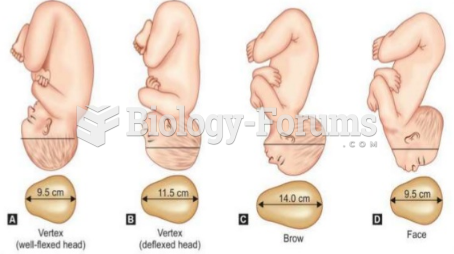|
|
|
Your chance of developing a kidney stone is 1 in 10. In recent years, approximately 3.7 million people in the United States were diagnosed with a kidney disease.
A cataract is a clouding of the eyes' natural lens. As we age, some clouding of the lens may occur. The first sign of a cataract is usually blurry vision. Although glasses and other visual aids may at first help a person with cataracts, surgery may become inevitable. Cataract surgery is very successful in restoring vision, and it is the most frequently performed surgery in the United States.
If you could remove all of your skin, it would weigh up to 5 pounds.
In 1835 it was discovered that a disease of silkworms known as muscardine could be transferred from one silkworm to another, and was caused by a fungus.
The first war in which wide-scale use of anesthetics occurred was the Civil War, and 80% of all wounds were in the extremities.
 In 1885 masked Nebraskans seeking access to water posed for photographer S. D. Butcher, who captione
In 1885 masked Nebraskans seeking access to water posed for photographer S. D. Butcher, who captione
 Young Bill Clinton (left) shakes hands with President John F. Kennedy. “The torch has been passed ...
Young Bill Clinton (left) shakes hands with President John F. Kennedy. “The torch has been passed ...





